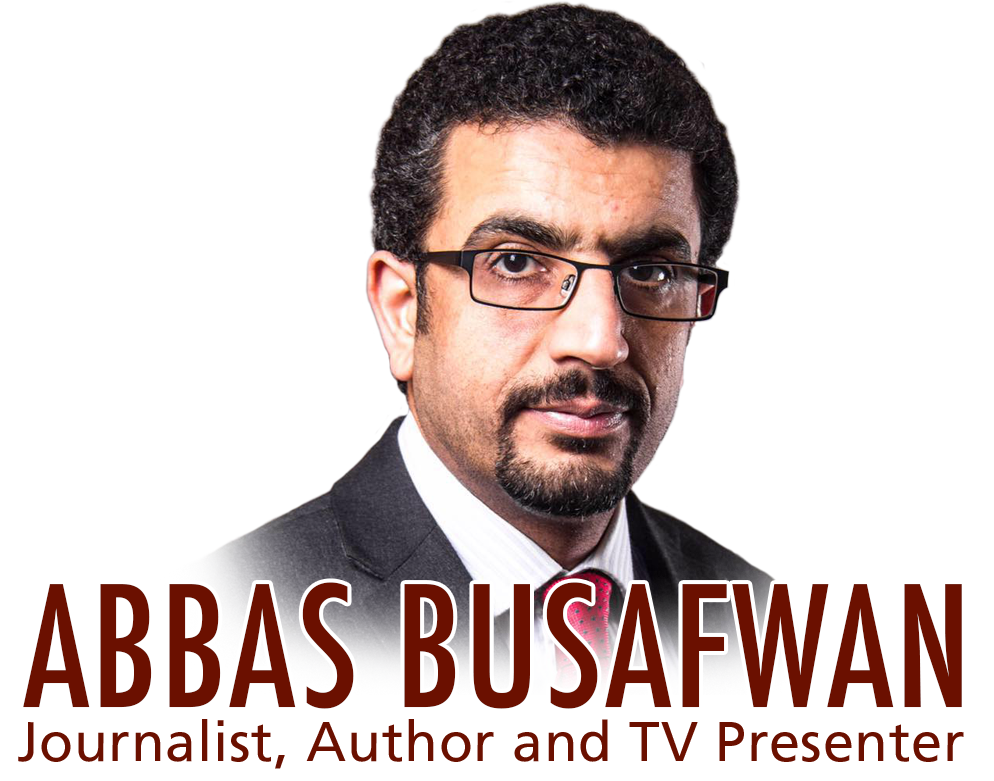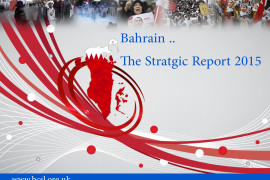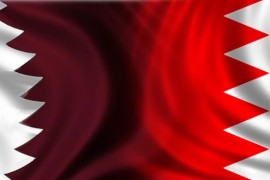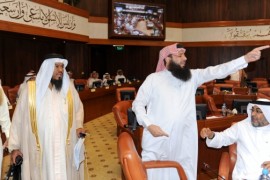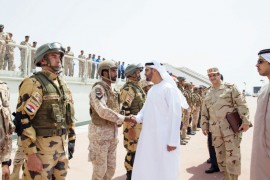- Instituting division in Bahrain: Boycott and popular referendum Vs government elections
- 1-Elections: a boring, recurring game
- 2-Terrorizing boycotters: a catastrophic failure
- 3-The national referendum: challenging the next step
This time three percentages will be announced in the Bahraini capital Manama, reflecting the different political perspectives. For its part, the government will announce the rate of participation in the parliamentary and municipal elections, opposition societies will announce a rate of participation that is very different from that announced by the government, and the February 14 coalition will announce the participation rate in the right for self-determination based on a popular referendum organized yesterday, and continues today as well.
Clearly, Bahrain faces two missions: a government mission in which the most prominent of its manifestations is todays parliamentary elections, in order to instate the existing situation, and another mission by the opposition aiming to restructure the power and give it an actual public format. But, it is not yet clear whether the opposition is able to convert vocabulary such as: boycott, referendum, and the popular so-called “civil disobedience” into an emergent plan. However, it is certain that a path which opposes the regime is starting to take shape as a “positive” scheme with tangible steps.
1-Elections: a boring, recurring game
Large segments will not participate in the parliamentary and municipal elections, which will begin today. The authority resorts openly to the carrot-and-stick approach to entice the loyalist public to go to ballot boxes distributed in different areas of Bahrain, including the controversial “public centers”.
Authorities have traditionally used these centers to increase the participation rate or increase the likelihood of a candidate over another, through the use of naturalized citizens (representing about 40% of the electoral bloc) and the military to vote for specific candidates. (Soldiers include naturalized citizens as well as loyalist Bahraini Sunnis, as the regime deprives the Shiite majority to work in the army in general and in significant positions in the security service). Governmental and semi governmental agencies have announced granting those who participate in the elections priority in employment in public sectors, as well as providing prizes (iPhone 6, for example) to those who vote.
Loyal audiences as well as the majority of the opposition view the parliamentary institution as unreliable, with limited powers in achieving legislations, activating control over the executive power which is dominated by the ruling family, and in the provision of services that are performed slowly. These services are promoted in the government and semi-government media as grants rather than being authentic rights of citizens. The absence of the opposition from the electoral conflict increases the reluctance of Sunni loyalists because there is a lack of an enthusiastic, tactical speech that is critical of the authorities, which distinguishes the speech of opposition societies.
So due to the absence of the opposition, it is difficult for the regime to invest sectarian discourse in revolutionizing Sunni groups, which view themselves as a lonely player in a battle with predetermined outcomes (imagine the extent of boredom you would face if you were to watch a recorded game and you know the outcome in advance). However, speeches that claim that the opposition intends evil towards the Sunnis and the regime through boycotting the elections did not disappear, but they seem to have limited effect in terms of persuading the Sunni public to participate in the parliamentary elections. The parliament has been tested for three consecutive sessions, and it seems a puppet in the hands of the ruling authorities to the extent that the Minister of Culture, Mai Al Khalifa, described its members as not manly enough when they criticized some musical events.
2-Terrorizing boycotters: a catastrophic failure
On the other hand, the official discourse classifies boycotters with treason, or in the least, as violators of the law, and action should be taken against them. The authorities explicitly resort to intimidate the opposition audience through the media. It is mentioned repeatedly that those who refrain from going to the polling stations will cause their areas to be deprived from provincial government services. These services are already terrible and are preferentially granted to regions that are loyal to the ruling family of Al-Khalifa.
However, many of these areas are also complaining about the poor quality of services. Those measures did not destroy the prevailing unanimity among the opposition, whether it was at home or abroad, liberal, leftist or Islamist, regarding the need to boycott the elections. The regime wants to invest in these elections to confirm its alleged legitimacy, and to prove that the authorities have surpassed the crisis, that erupted in a way that exceeded any expectations, in February 2011.
In fact, the persistence of the authorities to conduct the elections unilaterally, without a national consensus, while ignoring propositions by the opposition, forces the opposition, who has strong public influence, to employ a single option: the unanimous boycott of the elections. However, this unanimity has not yet evolved into an agreed upon plan, especially for the period following the elections. It is expected that this unanimity may not last after the elections, in light of the desire of Al-Wefaq and other political societies to continue in a vague dialogue with the regime and the refusal of groups that classify themselves as “revolutionary” to any step that brings back the re-consideration to the rule of King Hamad, who it deems has fallen when people demonstrated by sitting in the Pearl Roundabout (February – March 2011).
Without any doubt, Al-Wefaqs (the major political society in the country, which got a rate of about 65% of the vote in 2010) boycott for the elections will result in a low participation rate. The authorities will resort, in response, to declare a participation rate that differs from that announced by the opposition or independent media or civil agencies as what took place in 2002, when elections were held under the boycott of most opposition societies, and in 2011, when re-elections were held to fill the seats of the 18 resigned members from Al-Wefaq following the bloody attack on Pearl Roundabout. In both cases (2002 and 2011), there were conflicting statements about the participation rate, but the international consensus is almost sure that the elections lacked popular momentum.
3-The national referendum: challenging the next step
Against the “negative” boycott of the conservative (moderate) political societies, which were keen to avoid an open war with the regime that threatens their dissolution and threatens to close their headquarters, (societies did not succumb to these pressures) the activity of the February 14 Coalition appeared, in a manner remarkably reminiscent of its excellent, popular, and peaceful activities in 2011 and 2012. The youthful coalition was formed during the sit-ins at the Pearl Roundabout in 2011 as a secret organization and did not announce its representatives throughout the past three and a half years. However, the coalition broke its custom this time, when it announced the formation of an independent national body to a referendum (called self-determination) and named a woman (Balkees Ramadhan) as Chairperson of the Commission.
Ramadhan appeared at press conferences broadcasted by television channels that have close ties with the Bahraini opposition, in a move that reflects a regional embrace through such step. Locally, opposition societies have officially distanced themselves from the referendum, but they support it secretly. The “revolutionary” groups, while most of their leaders are either in prison or living outside the country, support the referendum (self-determination) publicly.
The symbolic dimension of the referendum cannot be hidden. The referendums amazing organization in the light of a remarkable popular response and high security precautions, reflects the oppositions youths ability to proceed with unilateral steps, in light of the regime’s insistence to continue in a solitary path. The referendum is not compatible with the regime, which demands the coalitions downfall, and also comes in response to the elections in which the authorities did not agree on collectively with the opposition.
The looming referendum might resort to regional powers and international organizations in the light of the obvious internationalization of the Bahraini issue. This internationalization is now taken seriously with the continuation of the Saudi military presence in Bahrain. However, more importantly, in my view, is the organizational capacity acquired by the coalition in the management of the referendum process in light of a violent crackdown. Similarly important is the growing confidence that can be earned through the public opinion, which does not find among opposition groups real alternatives to face the authorities, which are moving in the security approach. Usually “revolutionary” groups begin to propose ideas, followed by political groups, though after a while.
This applies to the call to topple the Prime Minister adopted by Abdulhadi Al-Khawaja in 2004, as it applies to the sit-ins at the Pearl Roundabout that changed the status quo in the small island. The elections conducted by the authorities on one hand, and the campaigns calling for boycott and organizing the people’s referendum carried out by the opposition parties, on the other hand, clearly reflects a deep division in Bahrain. This division is likely to intensify in the next phase, under the authorities’ refusal to any serious negotiations on the democratic transition, and the insistence of the region to create disorder. It is not far to say that there is a serious fear of transforming this division into a separation, which will push all parties to the point of no return
